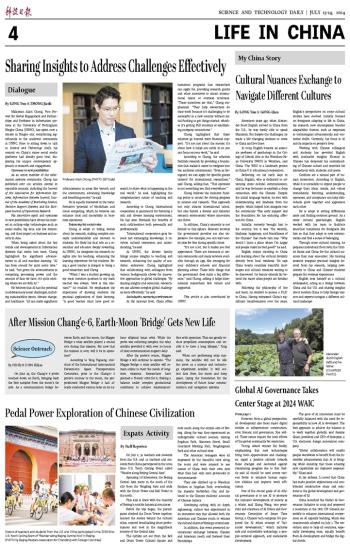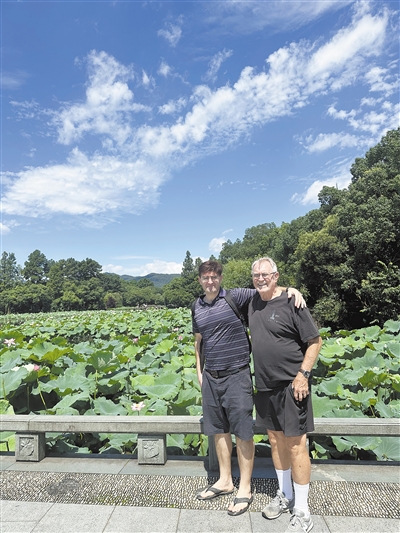
 |
| Alexander Scott English (left) and his father. (COURTESY PHOTO) |
Seventeen years ago, when Alexander Scott English arrived in China from the U.S., he was barely able to speak Mandarin. But despite the challenges, he made a life-changing decision to come to China and live there.
In 2023, English became an associate professor of psychology in the College of Liberal Arts at the Wenzhou-Kean University (WKU) in Wenzhou, east China. The WKU is a landmark project in China-U.S. educational cooperation.
Reflecting on his early days in China, English, who is dedicated to advancing cross-cultural communication, said he was fortunate to establish a deep connection with the Chinese. Despite the initial language barrier, he met with understanding and kindness from the people, which helped him integrate into the community. This early support laid the foundation for his enduring affection for China.
Initially, curiosity brought him to the country, but it was "the warmth, kindness, happiness, and friendliness of the Chinese" that made him stay. "Why would I leave a place where I'm happy and people make me feel good?" he said.
English enjoys traveling in China and learning about the cultural diversity directly from local residents. He says China boasts countless beautiful landscapes and cultural treasures waiting to be discovered. Its beauty extends far beyond the major cities people are familiar with.
Following the philosophy of live and learn, he decided to pursue a Ph.D. in China. Having witnessed China's significant transformation over the years, English's perspectives on cross-cultural studies have evolved. Initially focused on foreigners adapting to life in China, his research now encompasses broader adaptability themes, such as responses to technological advancements and economic shifts. Currently, his focus is AI and its impacts on people's lives.
Working with Chinese colleagues and students has provided English with invaluable insights. Fluency in Chinese has deepened his understanding of Chinese culture and enriched his interactions with students and peers.
Conflicts are a natural part of human interaction. According to English, while it is unrealistic to expect people to change their ideas, minds, and values immediately, fostering understanding, openness, and acceptance can help individuals grow together and appreciate each other.
He is adept at setting differences aside and finding common ground. As a cross-cultural psychologist, English worked with his team to facilitate smoother transitions for foreigners like him so that they adapt to new environments and find a sense of belonging.
Through cross-cultural training, he prepares individuals from both the United States and China for the cultural nuances they may encounter. His training sessions integrate practical insights derived from his research, helping newcomers to China and Chinese students prepare for overseas experiences.
English sees himself as a cultural ambassador, acting as a bridge between China and the U.S. and sharing insights about modern China to help foreign visitors and experts navigate a different cultural landscape.







